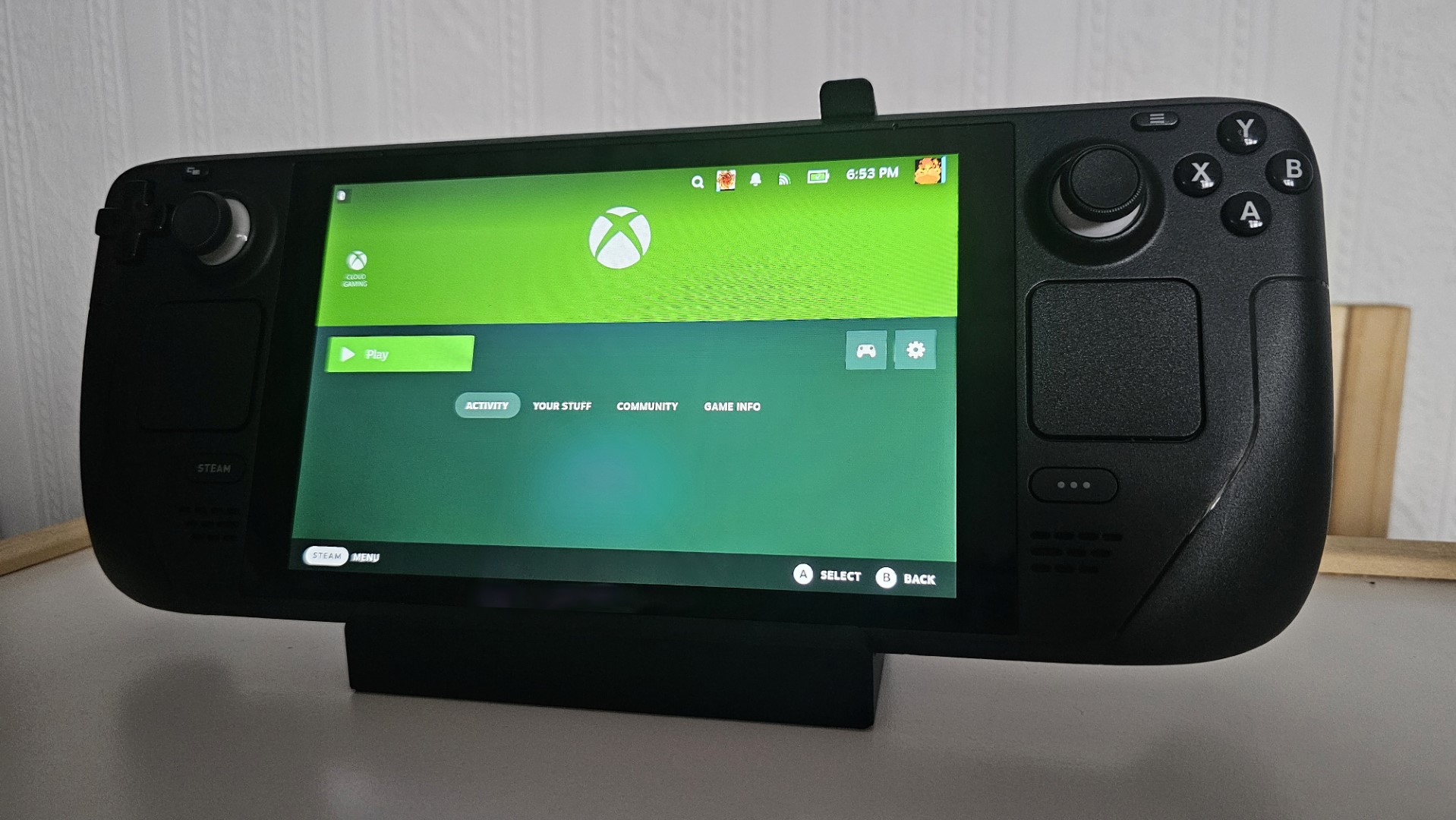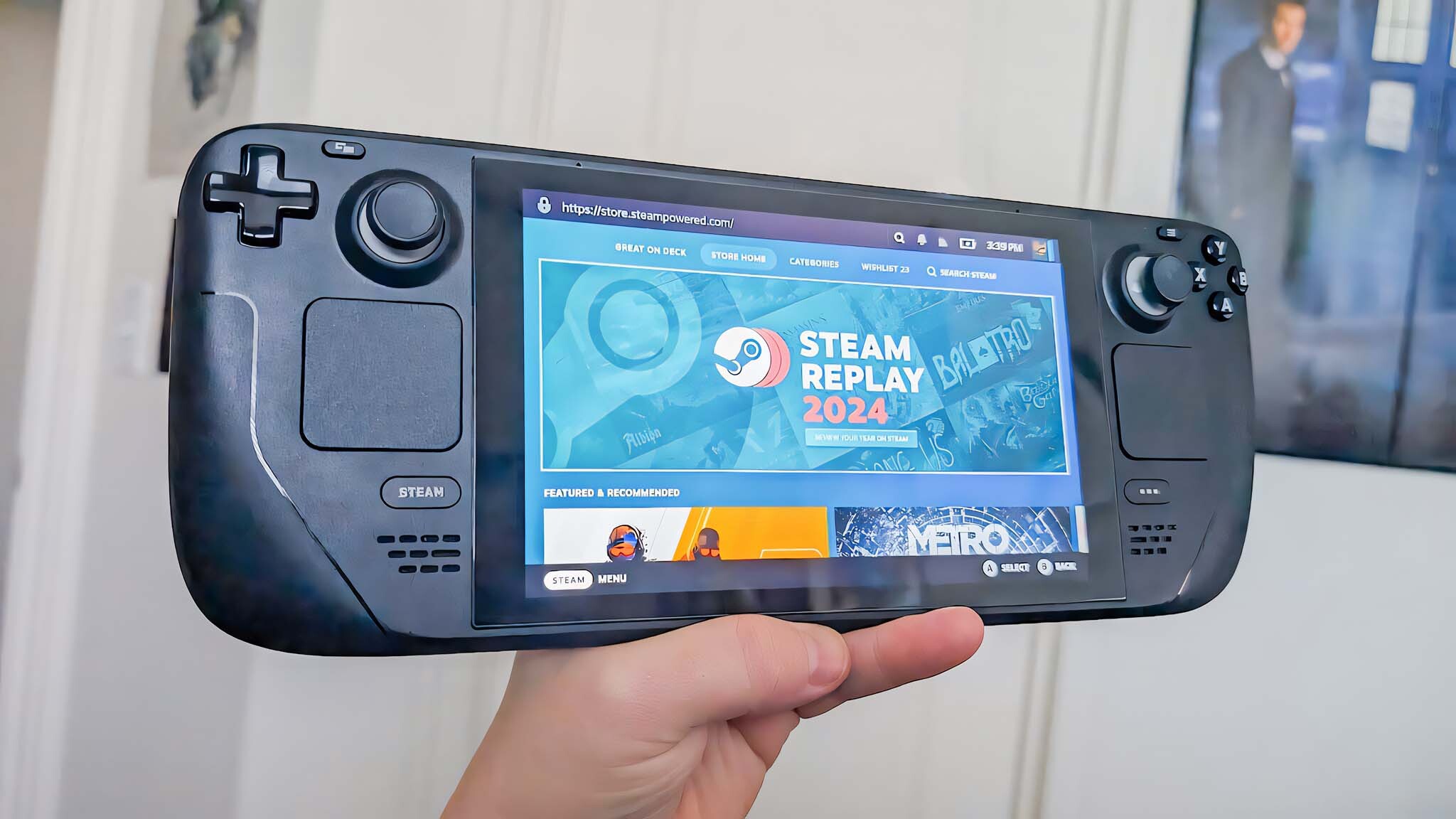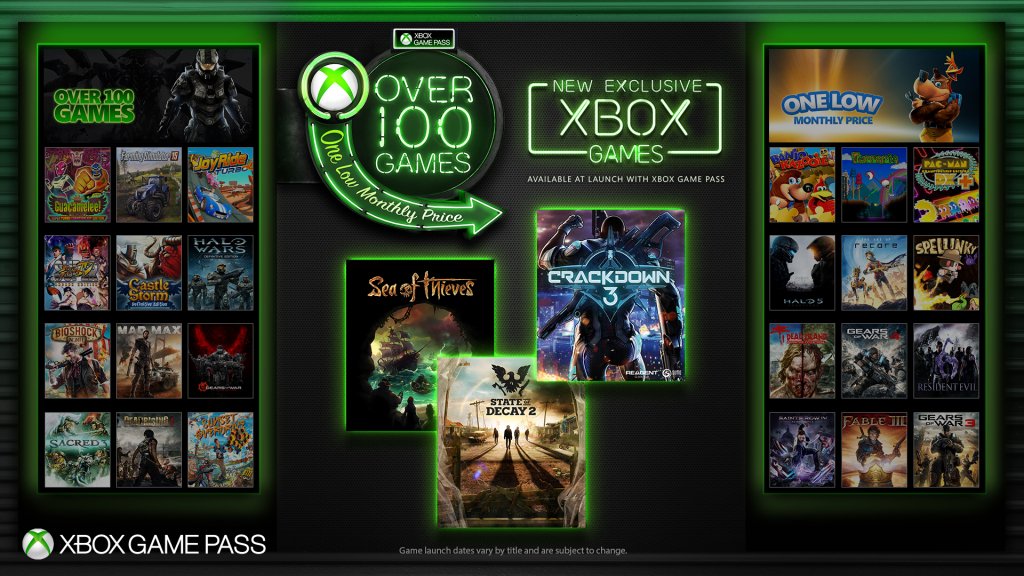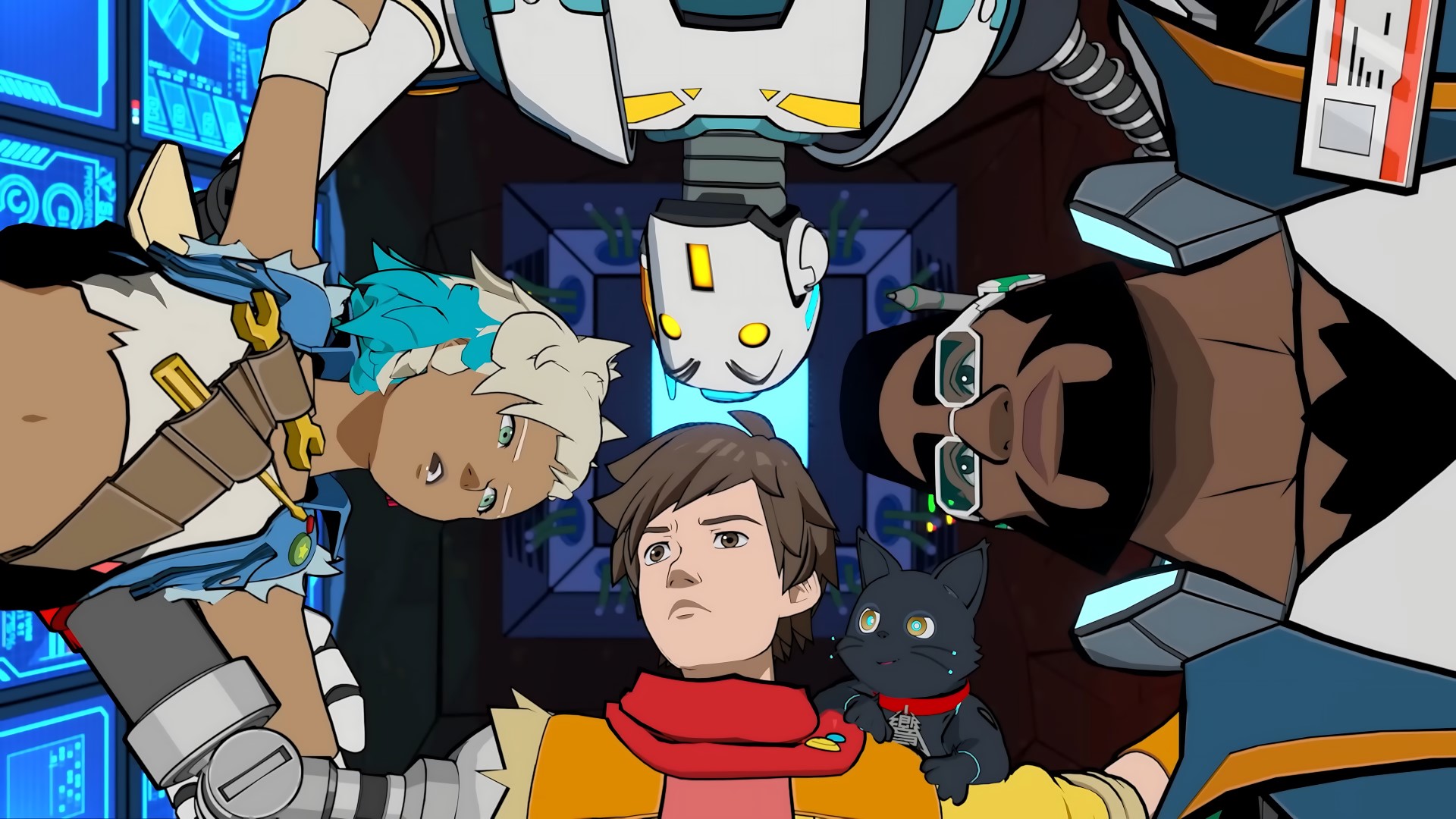
The Game Developers Conference (GDC) recently published findings from its 13th annual survey on the state of the gaming industry, gathering input from approximately 3,000 developers. Their responses offer insight into the effects that layoffs, generative AI, and other factors have had on the sector during the past year. Additionally, their answers provide a glimpse into developer sentiment towards live-service games and various platforms such as Xbox.
Some findings matched our predictions, but others hint at more significant shifts in the sector than we initially anticipated.
Steam Deck has made PC an even greater platform of choice

It’s often the preferred platform for developers to release their projects, with a significant majority planning to do so there. However, an intriguing finding from the survey suggests that the influence of devices like the Steam Deck (and possibly other portable gaming systems) might be reshaping the industry.
Last year, approximately two-thirds (66%) of developers indicated they were creating PC games, but this figure has risen substantially to 80% in the most recent survey. In contrast, about one third (38%) mentioned plans for their game’s PlayStation release, and slightly fewer (34%) were focusing on Xbox development. However, it’s worth noting that console-based projects haven’t been left behind – we’ll delve into this aspect later.
The Game Developers Conference (GDC) explains that the “Steam Deck” wasn’t explicitly listed among the options for development platforms in the survey. However, about 44% of respondents who selected “Other” mentioned the Steam Deck as a platform they are interested in, suggesting a potential strong interest in Valve’s handheld device.
Over the past year, I’ve found myself using my Steam Deck and ROG Ally more than traditional consoles or gaming computers. This trend seems to align with the evolving landscape of the gaming market. In essence, it appears that portable gaming devices are now playing a significant role in the overall gaming experience. If Xbox and PlayStation wish to remain competitive, they should seriously consider entering the handheld market soon and ensure their offering is exceptional enough to warrant users’ attention.
Xbox Game Pass gets more focus than PlayStation Plus does

In our discussion, we’ve primarily touched upon developers focusing on PC and portable gaming devices. However, it’s important to note that consoles such as Xbox and PlayStation are still very much in the running.
Previously mentioned, the survey revealed that approximately 38% of developers focused on creating content for PlayStation, whereas only 34% were working on projects for Xbox. This is significantly less than the 80% developing for PC, but it doesn’t necessarily imply concerns about console development. It’s essential to note that most developers in this context are independent or indie developers rather than large AAA studios. From an indie perspective, it’s generally safer to concentrate on PC platforms due to their broader audience. If a game becomes successful, individual developers and small studios may consider expanding their games to consoles.
Incidentally, the survey revealed that 13% of developers are designing games specifically for release on Xbox Game Pass, compared to just 9% targeting PlayStation Plus. In essence, this suggests that although Sony’s console may boast a larger player base, it seems that Xbox’s gaming subscription service is more attractive to developers than PlayStation’s.
Lately, Microsoft has been running an intriguing campaign titled “Xbox: It’s Not Just a Console,” aimed at boosting Xbox Game Pass and other services across multiple devices. Although it may not be the most clear-cut or advantageous promotional strategy, it does suggest that the company is experimenting with innovative methods to garner attention and broaden its user base.
Developers are more wary about generative AI this year — especially younger ones

Artificial Intelligence (AI), frequently marketed as a versatile aid for coding, concept art creation, and repetitive tasks, among others, has found its way into numerous sectors during the past couple of years. Yet, there’s an increasing trend among developers displaying less enthusiasm and more caution towards this technology over time.
Based on a recent GDC survey, about one-third (30%) of the developers who responded feel that generative AI is causing harm to the game industry. This percentage is 12 points higher compared to what was reported in the same survey last year. Interestingly, 52% of these developers work for companies employing generative AI, but only 36% of them personally use it.
Older developers are more likely to use generative AI than younger
ones.
The findings from the survey offer a fascinating perspective on which professionals at developer firms are actively employing AI, and it may surprise you. In the Finance and Business sector, 51% of respondents acknowledged their utilization of artificial intelligence tools. This was followed by Team Leadership and Production, where 41% reported using AI. Additionally, PR, Marketing, and Community saw a usage rate of 39%. Interestingly, the survey results do not show any significant use of AI in creative or visual art roles.
It’s intriguing that the survey reveals an observation: “older programmers are more likely to employ generative AI compared to their younger counterparts.” The reason behind this disparity remains uncertain, but it could be linked to the distinct roles older workers typically assume within a company as opposed to those held by younger individuals.
This year, developers may approach AI with caution, but it’s reasonable to expect that this subject will keep generating interest and advancements over the coming years.
One in 10 game developers has been laid off in the past year and it’s had an affect

Over the last few years, a significant number of job cuts have occurred within the video game industry, making it challenging to stay updated. Not even successful studios like Tango Gameworks, known for games such as Hi-Fi Rush, are exempt from these layoffs.
Based on a recent GDC survey, it was discovered that about 10% of game developers have been let go in the last year. When queried about the effects of layoffs on them or their organization, 43% of survey participants said there had been no layoffs, while 29% indicated that some colleagues were affected, and a further 4% acknowledged being laid off themselves.
The survey posed the question “How concerned are you about potential job losses in the future?” Out of all respondents, 30% said they weren’t at all concerned, while 24% expressed slight concern, 18% reported being very concerned, and 16% were somewhat concerned. A further 12% responded with “other” or “not applicable.” Interestingly, I was taken aback to learn that relatively fewer software developers seemed anxious about their own job stability given layoffs happening elsewhere.
In recent times, factors such as excessive expansion during the pandemic period, escalating manufacturing expenses, waning enthusiasm among players, unattainable hopes about the next major success, and ineffective management or poor leadership have been commonly cited reasons for the rise in job cuts.
The following reasons were frequently mentioned when asked why increased layoffs are happening: expanding too much during the Covid period, increasing production costs, decreasing player interest, unrealistic expectations about the next big thing, and poor leadership or mismanagement.
Analyzing the positions that have experienced the most job cuts provides some insightful information. According to a survey, those in Narrative roles faced the highest layoffs (19%), followed closely by Production & Team Management as well as Visual Arts, each reporting 16% job losses. Programming/Engineering positions accounted for 12%, while Game Design saw 9% and Business & Finance roles experienced 6%. It appears that roles focused on creativity and management are the least secure.
This situation raises the curiosity: Why are gaming firms continuing to let employees go? Among those surveyed, 22% cited “Reorganization,” while 18% attributed it to a drop in income and 15% mentioned “Changes in Market / Industry Movements” as reasons for the layoffs. Interestingly, 19% of respondents said that their companies provided no explanation for the job cuts.
The survey additionally inquired about the reasons respondents believed there was an increase in layoffs. Many frequent responses pointed to factors such as “expansion during the Covid-era, escalating production costs, waning player engagement, unattainable expectations for the next major success, and poor leadership and mismanagement.
These options appear quite feasible. But remember, each company may handle layoffs uniquely due to their specific circumstances. Essentially, what these explanations seem to convey is an industry-wide transition that’s currently taking place.
A whopping third of developers are working on live service games,

These wildly sought-after multiplayer games such as Fortnite, Call of Duty Black Ops 6, Destiny 2, Genshin Impact, League of Legends, and others have managed to retain players with fresh content while also enabling developers to generate significant income even after the game’s initial release – essentially creating a continuous revenue stream.
Indeed, not every online game launched becomes a success story, as demonstrated by Sony’s Concord, which struggled with low player numbers and eventually closed. Just last week, we learned that PlayStation allegedly scrapped two more live service games, including one based on God of War. The market is currently quite crowded, making it challenging to make an impact when trying to break in.
33% of AAA developers currently work on live-service games.
In contrast to my assumption that the GDC survey would reveal a majority viewpoint regarding live service games as a risky or negative endeavor for developers, the results were surprisingly divided. About one in eight respondents expressed an interest in creating live-service games, whereas approximately four in ten stated they had no desire to do so. A similar number of respondents were undecided. Interestingly, about one-third of AAA developers are currently involved in live-service game development, which is a significant proportion.
Starting a new live-service game involves a fair amount of risk, but if it takes off, it can provide more job security and foster a dedicated player base. Nevertheless, there are valid concerns about such games, such as exploitative tactics, additional purchase options, and potential for burnout (among other issues). Regrettably, questionable practices in these areas have been observed in the past.
A time of turbulence and change

This year’s GDC State of the Industry Survey highlights several significant topics such as layoffs, advancements in generative AI, and adjustments to platform focus. It appears we are experiencing a period of transition, which at times may feel uncertain or turbulent. It seems like every few months, there is news about game developer layoffs. The ever-evolving interests of players, questionable management strategies, rapid technology changes, market saturation, and other factors can make the industry unpredictable, potentially impacting job stability.
Indeed, for some, the term “generative AI” carries a negative connotation, and it appears that developers today are more cautious about it than they were previously. Nevertheless, this hasn’t deterred older developers or those in specific roles from utilizing it. Over the coming years, we can expect this field to undergo significant changes as AI technologies and services themselves continue to advance.
In the meantime, it appears that the Steam Deck is encouraging an increasing number of game developers to create titles suitable for PC. However, it’s worth noting that both Xbox and PlayStation remain strong contenders; they merely need to adapt or fine-tune their approaches.
Undeniably, I frequently observe that Game Developers Conference (GDC) consistently tackles tough subjects at its yearly five-day gathering. This platform fosters a space where developers can congregate, air their concerns, and educate each other, which undoubtedly contributes to the growth of our industry. It’s quite probable that many of these topics will be further discussed during the GDC event in March.
The Game Developers Conference (GDC) is just a stone’s throw away, happening at the Moscone Center in San Francisco from March 17 to March 21, 2025. If you’re eager to be part of it, registration is now open for all interested attendees.
Read More
- PI PREDICTION. PI cryptocurrency
- WCT PREDICTION. WCT cryptocurrency
- Guide: 18 PS5, PS4 Games You Should Buy in PS Store’s Extended Play Sale
- LPT PREDICTION. LPT cryptocurrency
- Gold Rate Forecast
- SOL PREDICTION. SOL cryptocurrency
- FANTASY LIFE i: The Girl Who Steals Time digital pre-orders now available for PS5, PS4, Xbox Series, and PC
- Playmates’ Power Rangers Toyline Teaser Reveals First Lineup of Figures
- Shrek Fans Have Mixed Feelings About New Shrek 5 Character Designs (And There’s A Good Reason)
- Here’s What the Dance Moms Cast Is Up to Now
2025-01-21 20:40